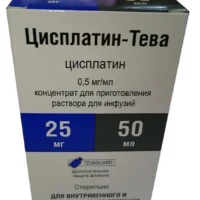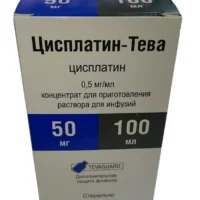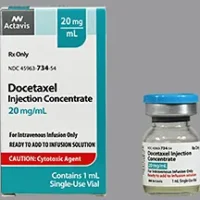Description
Keytruda (pembrolizumab) Concentrate for Infusions 25 mg/ml. 4 ml. Vial №1
Composition
Key Ingredient: Pembrolizumab
Mechanism of Action
Pharmacological Properties: Keytruda is a monoclonal antibody that functions by blocking the PD-1 receptor, enhancing the body’s immune response against cancer cells. This mechanism aids in the immune system’s improved recognition and attack on cancer cells.
Indications for Use
Keytruda is indicated for:
- Treatment of advanced melanoma
- Non-small cell lung cancer
- Head and neck squamous cell cancer
Contraindications
Keytruda is contraindicated in individuals with:
- Severe hypersensitivity reactions to pembrolizumab
- Active autoimmune disease that has required systemic treatment
Side Effects
Keytruda may cause side effects such as fatigue, rash, and immune-related adverse reactions. Close monitoring during treatment is crucial to effectively manage any potential complications.
Usage Instructions
Dosage: The recommended dose of Keytruda is 200 mg administered as an intravenous infusion over 30 minutes every 3 weeks. Keytruda should be administered by a healthcare professional.
Benefits Compared to Analogues
Keytruda has shown significant benefits in clinical trials, including improved overall survival rates and durable responses in patients with various cancers. Its targeted approach harnesses the body’s immune system effectively, making it a valuable treatment option for individuals with advanced cancers.
Suitable Patient Groups
Keytruda is suitable for patients across different age groups, including children and the elderly, who meet the indicated conditions for treatment.
Storage and Shelf Life
Storage Conditions: Keytruda should be stored as per the manufacturer’s instructions to maintain its stability and efficacy. Check the packaging for specific storage requirements.
Shelf Life: Refer to the expiration date on the packaging. Do not use Keytruda after the specified date.
Packaging Description
Keytruda is available in a 4 ml vial with a concentration of 25 mg/ml, providing a convenient formulation for intravenous infusions.
Clinical Evidence and Proven Effectiveness
Pharmacological Effects: Keytruda has demonstrated efficacy in various cancers by improving overall survival rates and producing durable responses in patients.
Clinical Studies: Clinical trials have shown significant improvement in progression-free survival in patients with advanced melanoma treated with pembrolizumab compared to traditional chemotherapy. For example, a study published in the New England Journal of Medicine highlighted these positive outcomes.




